Second grade math students are mastering their math facts and moving on to multi-digit addition and subtraction. They’re conquering time-telling and money skills, measuring and graphing, and even tackling skip-counting in preparation for multiplication. Help them learn all the required second grade math skills with these fun and interactive games!
(Just a heads up, WeAreTeachers may collect a share of sales from the links on this page. We only recommend items our team loves!)
1. Sort dominoes into evens and odds
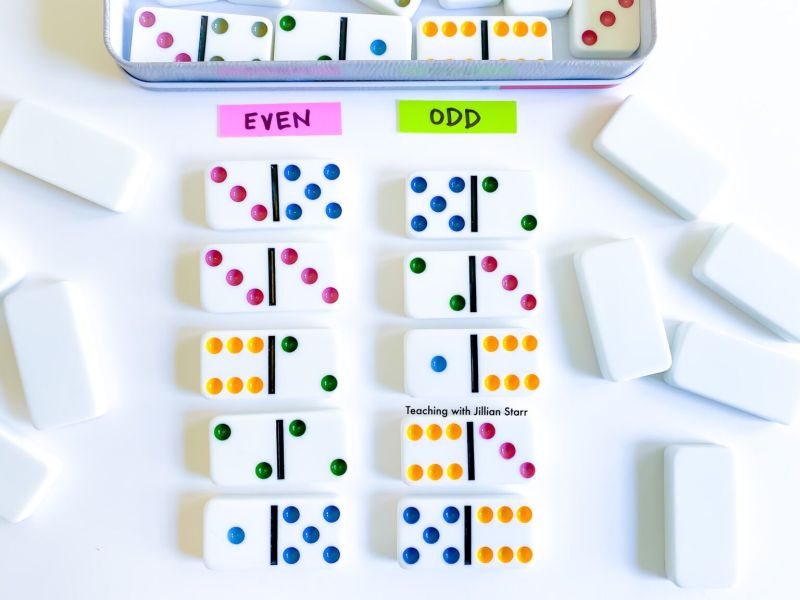
Teaching With Jillian Starr/Evens and Odds via jillianstarrteaching.com
Math games don’t need to be complicated! Give kids a box of dominoes and challenge them to see how quickly they can sort them by the total number of dots into evens and odds.
Learn more: Teaching With Jillian Starr
2. Fill an arrays grid
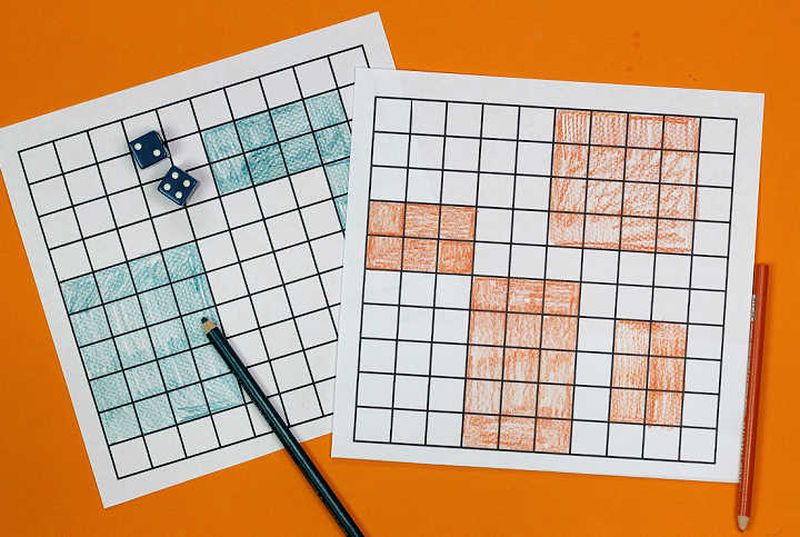
What Do We Do All Day?/Roll and Array via whatdowedoallday.com
Second graders start prepping for multiplication by learning about arrays. In this game, kids roll dice and color in the array the two numbers represent. They’ll need to use some strategy, because if they roll an array that doesn’t fit on their grid, they forfeit their turn.
Learn more: What Do We Do All Day?
3. Turn Yahtzee into a place-value game
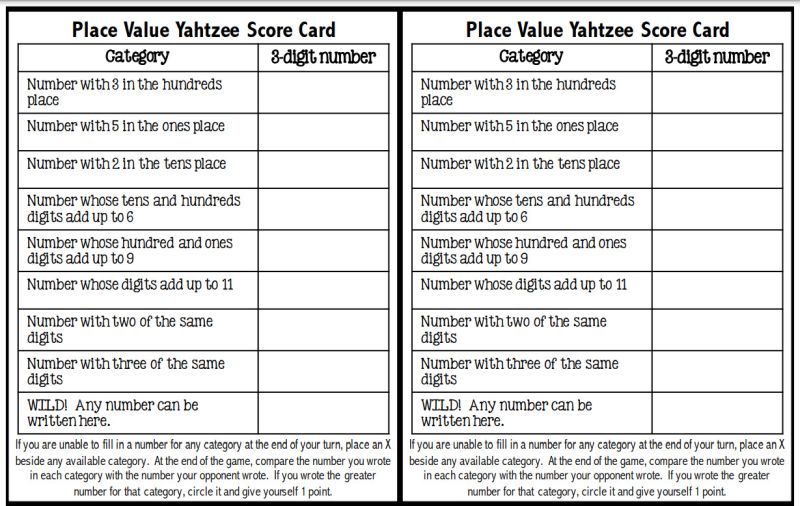
Games 4 Gains/Place Value Yahtzee via games4gains.com
With a few tweaks, Yahtzee is a terrific game for working on place value and comparing numbers. Grab these free printable scorecards at the link, and watch this game become a classroom favorite!
Learn more: Games 4 Gains
4. Connect 4 to practice telling time
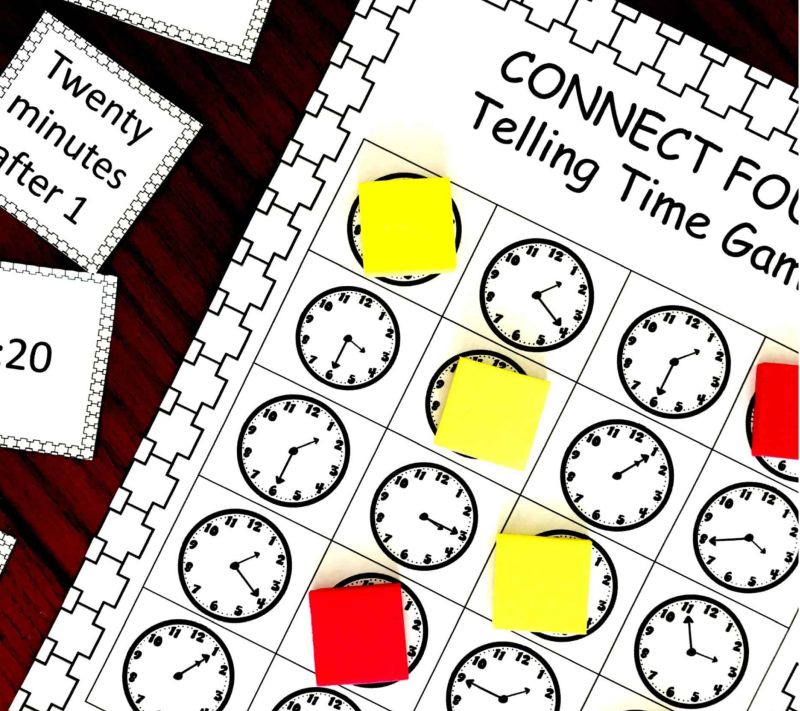
You’ve Got This Math/Connect Four Telling Time via youvegotthismath.com
With this free printable game, kids can practice telling time in a fun and interactive way. They simply draw a card and place their marker on the matching square, trying to be the first to get four in a row.
Learn more: You’ve Got This Math
5. Make measurement monsters
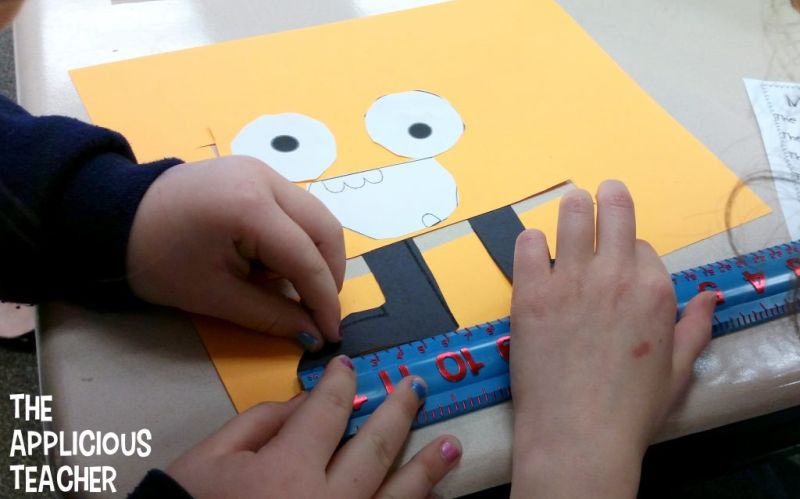
The Applicious Teacher/Measurement Monsters via theappliciousteacher.com
Kids will get such a kick out of this one! Provide construction paper and let them create their own crazy monsters. Then, have them measure each body part and record the results. Adorable, fun, and educational!
Learn more: The Applicious Teacher
6. Use flash cards to play Fifteen in a Row
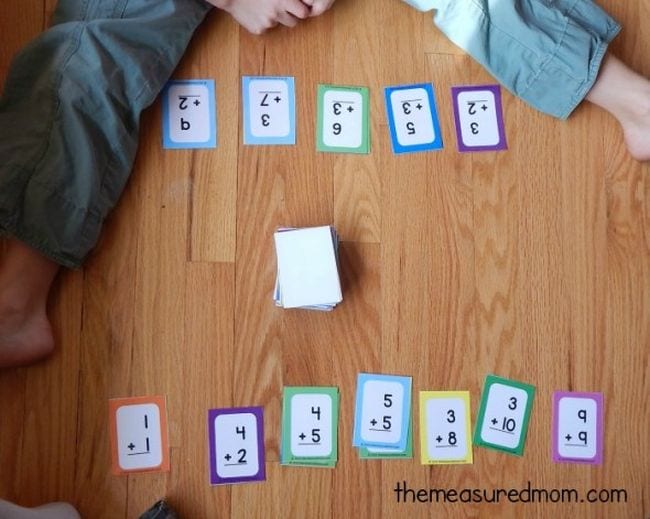
The Measured Mom/Fifteen in a Row via themeasuredmom.com
When it comes down to it, flash cards are still one of the best ways to practice fact fluency, but a game can at least make them more fun. The goal is to lay out 15 flash cards in a row by the total of their sums, from smallest to largest. Learn how it’s played at the link.
Learn more: The Measured Mom
7. Circle math facts in a number search
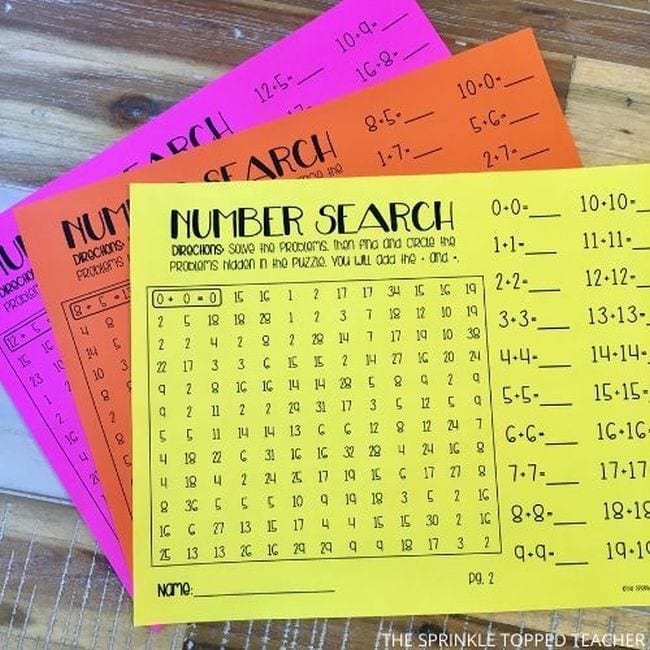
The Sprinkle Topped Teacher/Number Search via thesprinkletoppedteacher.com
These number search puzzles are harder than they look! First, kids complete the addition facts. Then, they search for those equations in the puzzle. Get three free puzzles at the link, where you can purchase more if you like them.
Learn more: The Sprinkle Topped Teacher
8. Hit a home run for math fact fluency

Frugal Fun for Boys and Girls/Math Facts Baseball via frugalfun4boys.com
Work on addition and subtraction fact fluency in this fun baseball game! Learn how to play at the link.
Learn more: Frugal Fun for Boys and Girls
9. Toss cotton balls to learn evens and odds
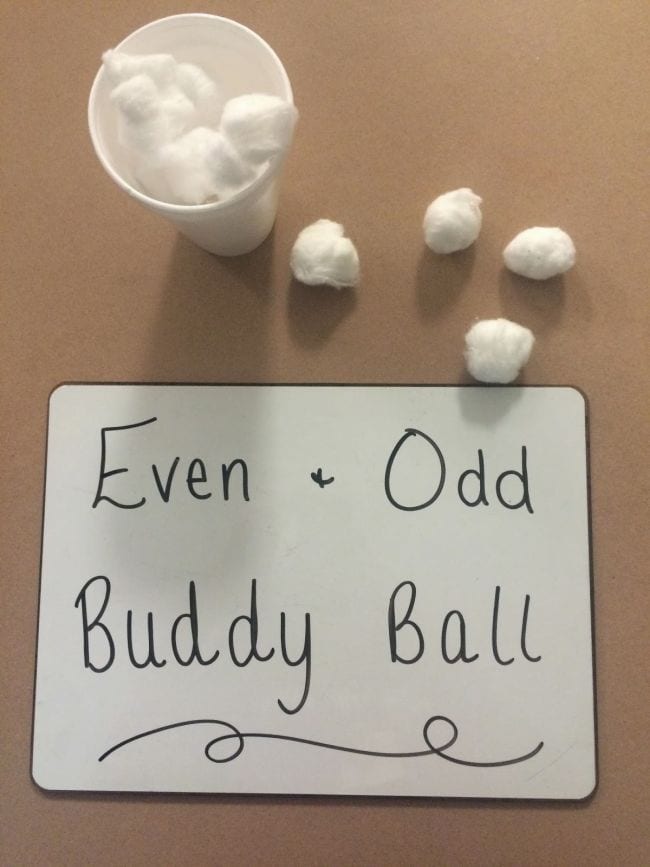
Lauren Piper/Buddy Ball via lauren-piper.com
A chance to throw stuff in the classroom? Kids will love it! In Buddy Ball, second grade math students take turns throwing cotton balls into the cup their partner is holding. Then they count them up by twos to see if the total is even or odd.
Learn more: Lauren Piper
10. Roll and compare for place-value practice
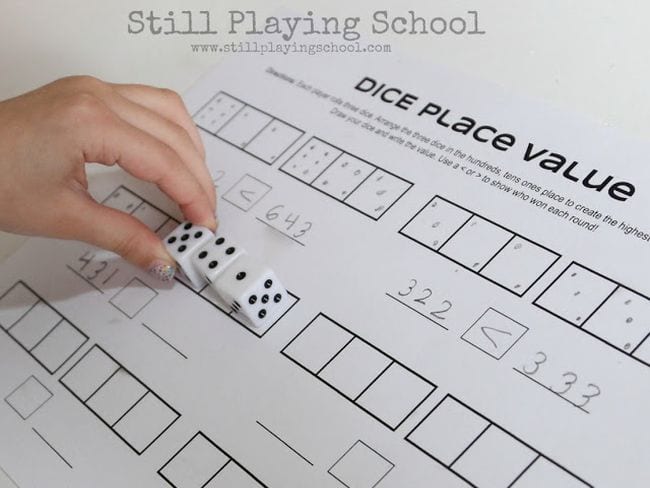
Still Playing School/Dice Place Value via stillplayingschool.com
There are so many ways to use dice in the classroom. In this game, each player rolls three dice and arranges them to give themselves the highest possible number. Then they compare with their partner to see who wins. Great for place value and understanding greater than/less than.
Learn more: Still Playing School
11. Toss beanbags to work on place value

Saddle Up for 2nd Grade/Place Value Toss via saddleupfor2ndgrade.com
Kids toss beanbags into bins labeled with different place values, then count how many are in each and write out the number. The students who aren’t throwing play along by writing the number on their own, earning a point if they get it right.
Learn more: Saddle Up for 2nd Grade
12. Go on a place-value scavenger hunt

Primary Theme Park/Place Value Scavenger Hunt via primarythemepark.com
Reinforce place-value skills with a fun scavenger hunt. Grab a stack of old magazines or newspapers and send kids out to find the required numbers.
Learn more: Primary Theme Park/Place Value Scavenger Hunt
13. Jump into skip-counting hopscotch
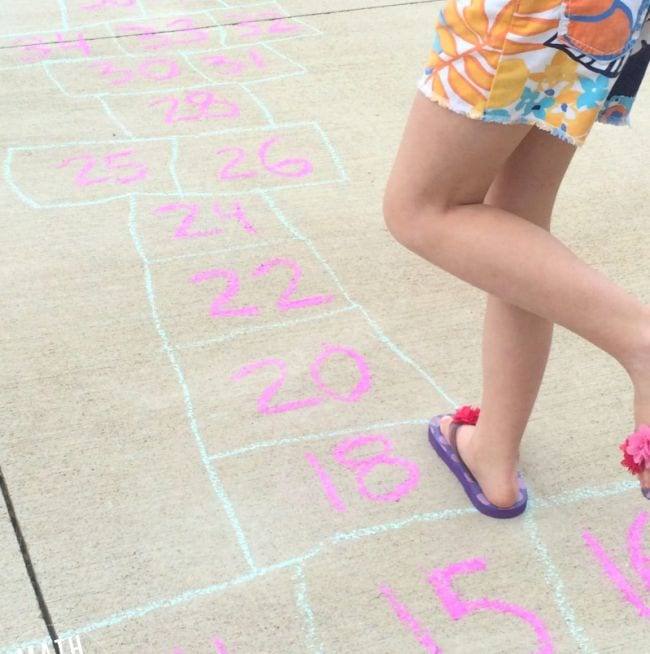
Math Geek Mama/Skip-Counting Hopscotch via mathgeekmama.com
Second grade math students master skip-counting to pave the way for multiplication. Hopscotch is such a fun way to work on this skill! Number the board for whatever you’re working on (twos, fives, tens, etc.) and offer a few choices to make along the way.
Learn more: Math Geek Mama/Skip Counting Hopscotch
14. Solve puzzles with skip-counting
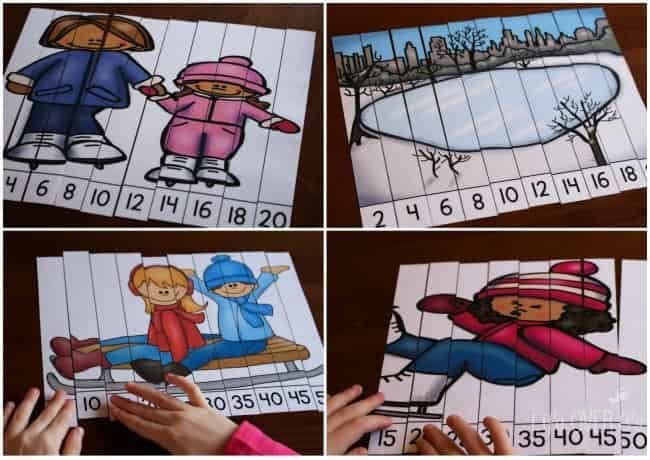
Life Over C’s/Skip-Counting Puzzles via lifeovercs.com
There are lots of printable skip-counting puzzles out there. Visit the link below for some free ones to try with your class.
Learn more: Life Over C’s
15. Stack cups to practice skip-counting
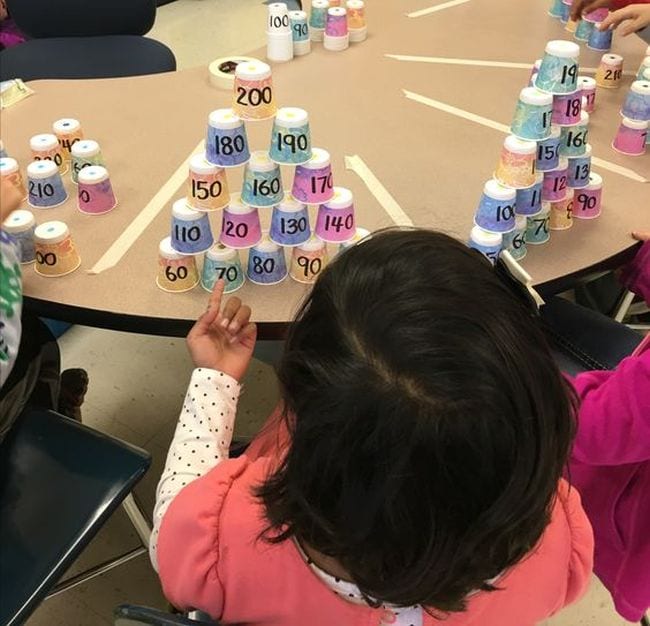
Jennifer Williams via Pinterest
Kids LOVE to stack paper cups. Number yours to practice counting by twos, fives, tens—whatever you’re working on. Then challenge students to race to see who can stack theirs in the correct order the fastest!
Photo: Jennifer Williams/Pinterest
16. Flip cards and add to 100
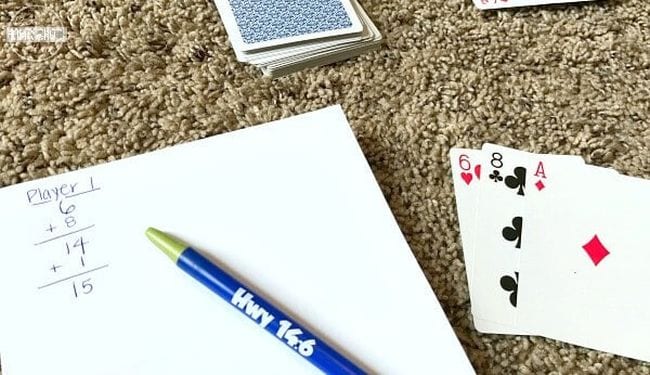
123 Homeschool 4 Me/Addition to 100 via 123homeschool4me.com
This simple second grade math game uses a standard deck of playing cards (take out the face cards or assign them values, like 1 or 10). Players draw a card and add it to their running total, trying to be the first to reach 100 without going over. Increase the difficulty level by having players draw two cards and add them together, then add the sum to their total.
Learn more: 123 Homeschool 4 Me/Addition to 100
17. Roll to 100
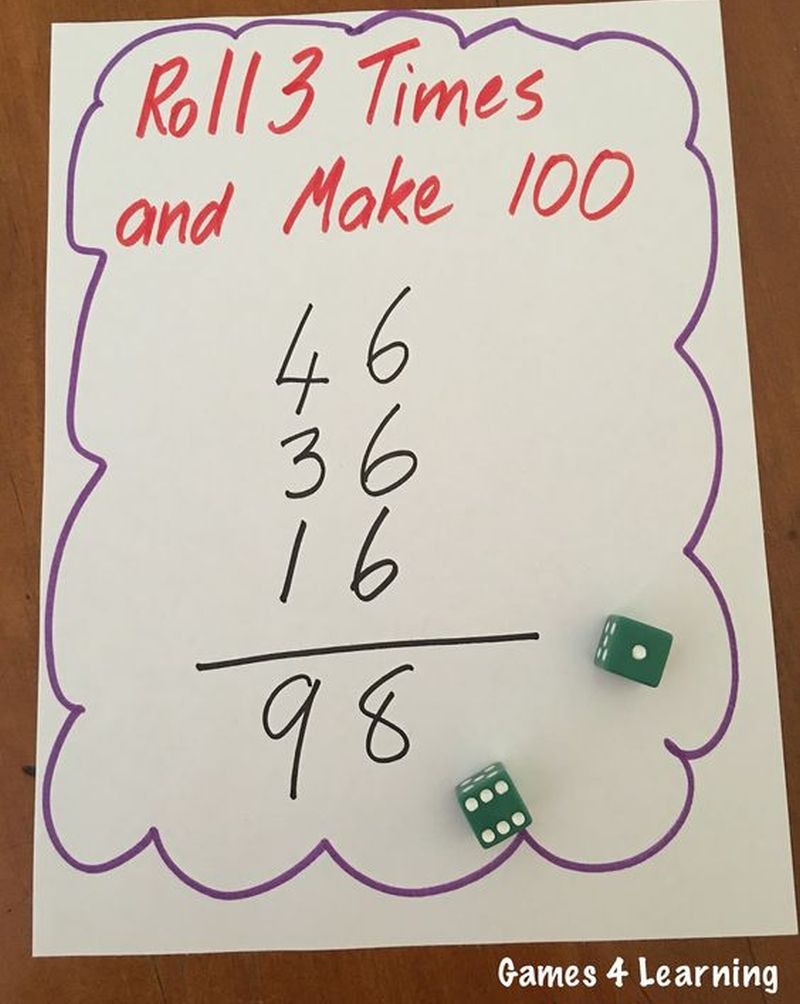
Games 4 Learning/Roll to 100 via games4learning.com
Here’s another “make 100” game, but this one emphasizes addition with two-digit numbers instead. Kids roll the dice three times, then try to make three numbers that get closest to 100.
Learn more: Games 4 Learning
18. Compete at Close Call
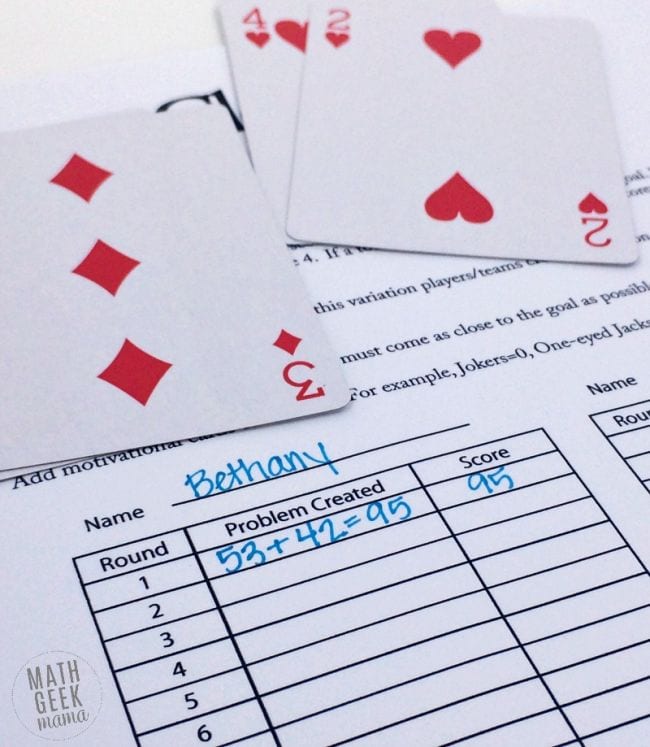
Math Geek Mama/Close Call via mathgeekmama.com
Here’s another way to use cards, this time to practice two-digit addition. Each player flips four cards, then arranges them so they add up to the highest possible amount. The person with the highest sum wins that round.
Learn more: Math Geek Mama/Close Call
19. Subtract your way to bingo
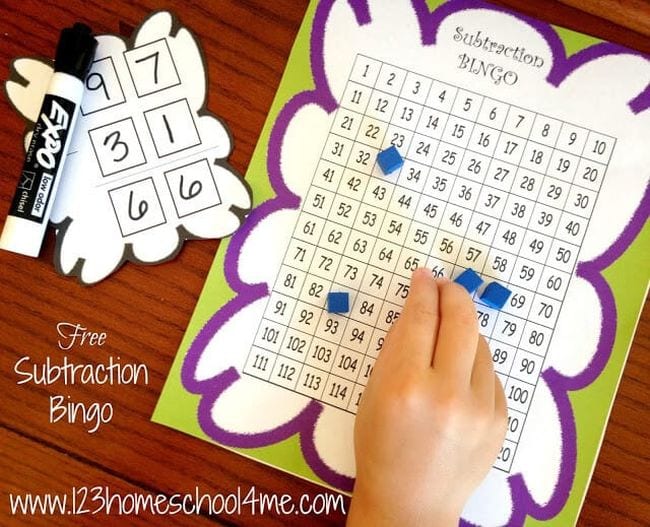
123 Homeschool 4 Me/Subtraction Bingo via 123homeschool4me.com
Use a hundreds chart and deck of cards to play bingo with subtraction facts. Find full instructions at the link.
Learn more: 123 Homeschool 4 Me/Subtraction Bingo
20. Measure and find objects
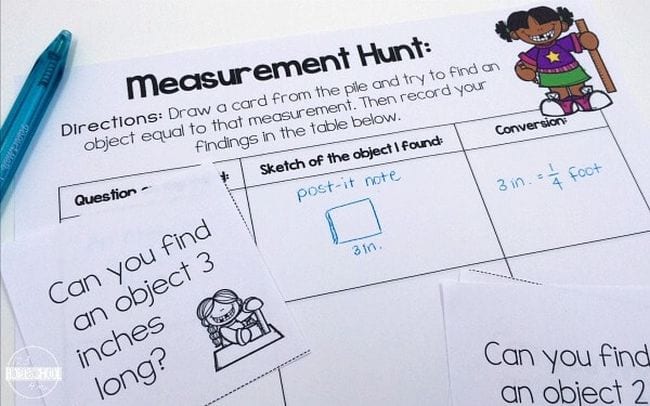
123 Homeschool 4 Me/Measurement Hunt via 123homeschool4me.com
For a fun practice activity, have kids find objects that fit certain criteria. They’ll have to estimate, then measure to see if they’re right.
Learn more: 123 Homeschool 4 Me/Measurement Hunt
21. Race cars and measure the distance
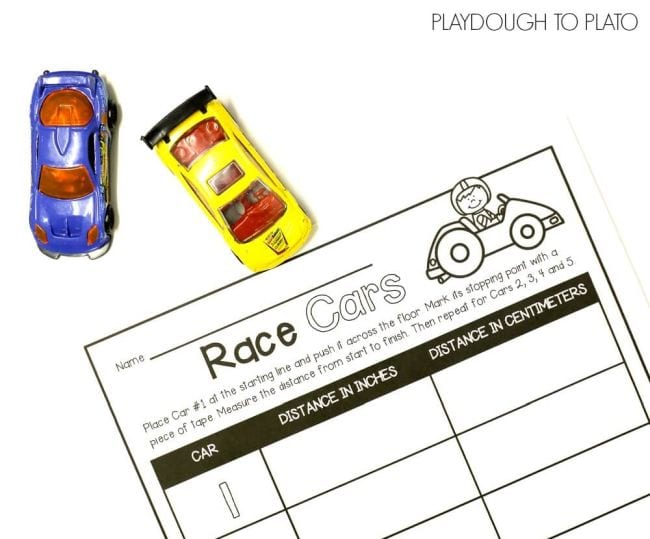
Playdough to Plato/Race Car Measurement via playdoughtoplato.com
Vroom! Grab some toy cars and race them across the floor. Then, measure the distance in both inches and centimeters.
Learn more: Playdough to Plato
22. Host the Measurement Olympics
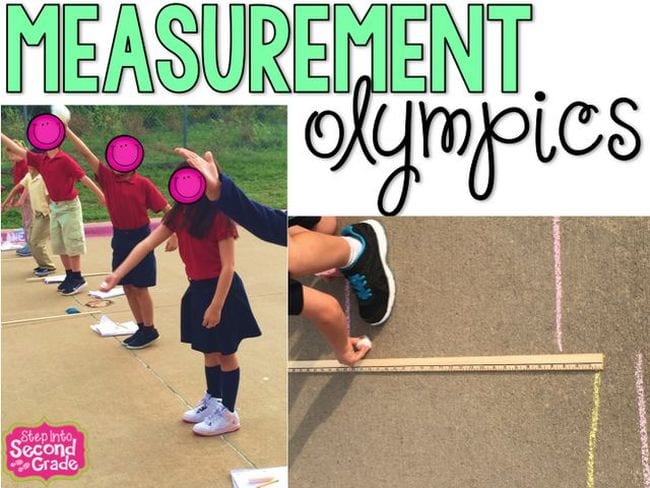
Step Into Second Grade With Mrs. Lemons/Measurement Olympics via bloglovin.com
Olympic events are all about measuring, so it’s a perfect way to get second grade math students to practice these skills. Hold a variety of events (see the link for ideas and a free printable), and measure each in a different way: inches, centimeters, feet, yards, meters, and so on. For even more math practice, use a line graph to show the rankings for each event.
Learn more: Step Into Second Grade With Mrs. Lemons
23. Hop along a number line to solve equations
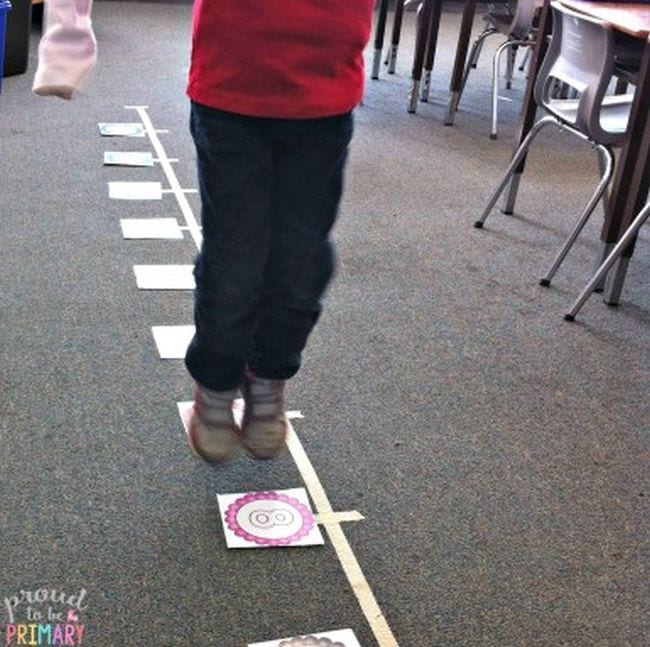
Proud To Be Primary/Number Line via proudtobeprimary.com
Make a life-size number line on your classroom floor, then print the free equation cards at the link below. Second grade math students take turns drawing a card and hopping back and forth on the line to solve the equations.
Learn more: Proud To Be Primary
24. Guess My Number to practice number sense
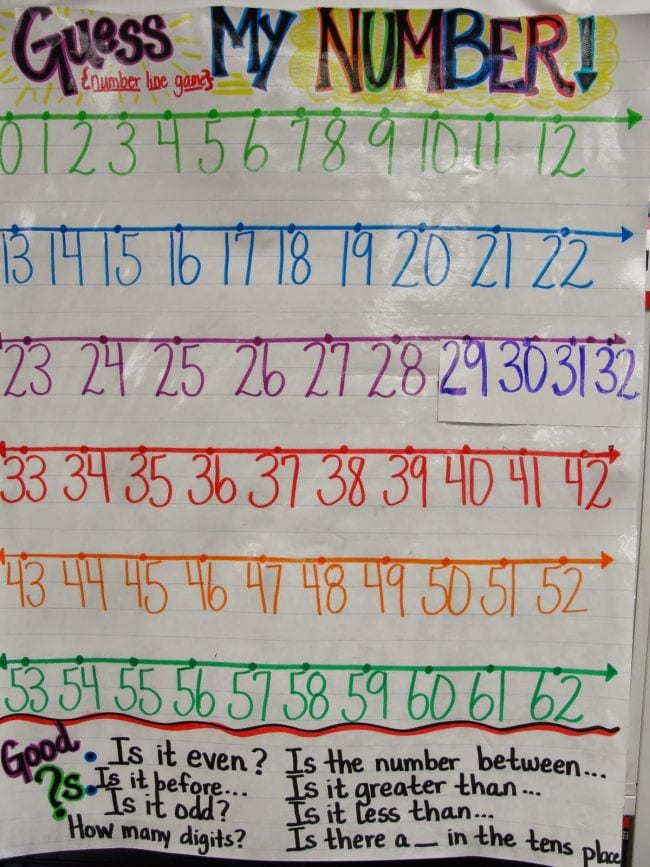
Amy Lemons/Guess My Number via amylemons.com
Evens and odds, comparing, place value … there are so many second grade math skills covered in this one simple game! Kids take turns asking questions, and the one who guesses correctly chooses the number for the next round.
Learn more: Amy Lemons/Guess My Number
25. Match up time-telling eggs
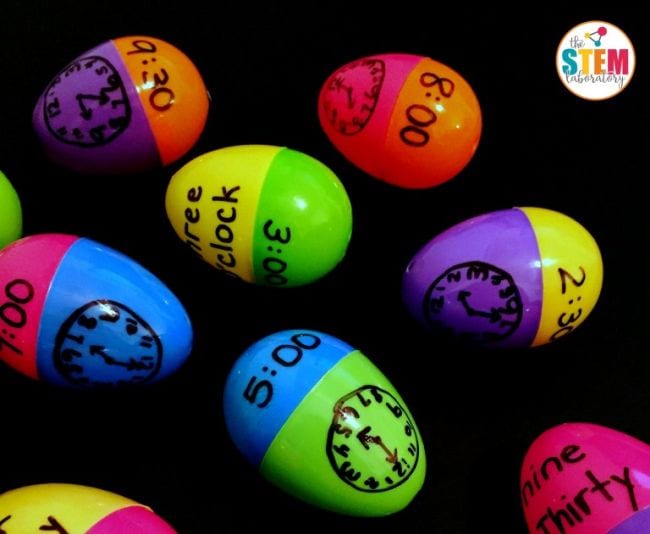
The STEM Laboratory/Egg Time Match via thestemlaboratory.com
Plastic eggs have so many uses in the classroom. For time-telling practice, draw analog clocks on one half and write times (in words or digital time) on the other, then have kids match them up. (Too late for Easter eggs in the stores? Grab them on Amazon here.)
Learn more: The STEM Laboratory
26. Practice telling time with Rush Hour
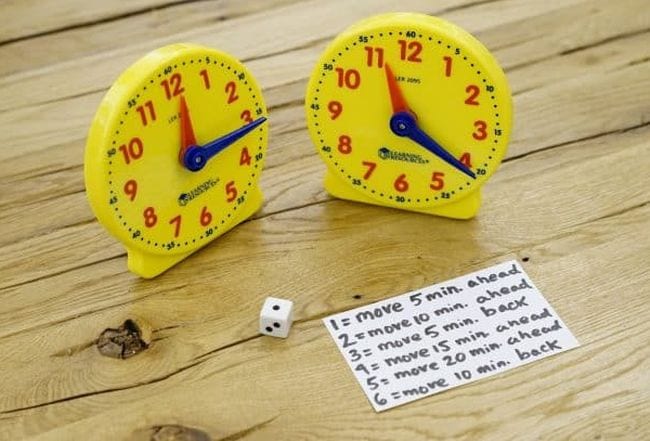
Enza’s Bargains/Rush Hour via enzasbargains.com
This time-telling game has kids racing to move their toy clock ahead exactly to the next hour, but it’s all determined by the roll of the die. Make sure they practice their clock skills by saying each new time out loud as they go along.
Learn more: Enza’s Bargains
27. Assemble coin-counting puzzles
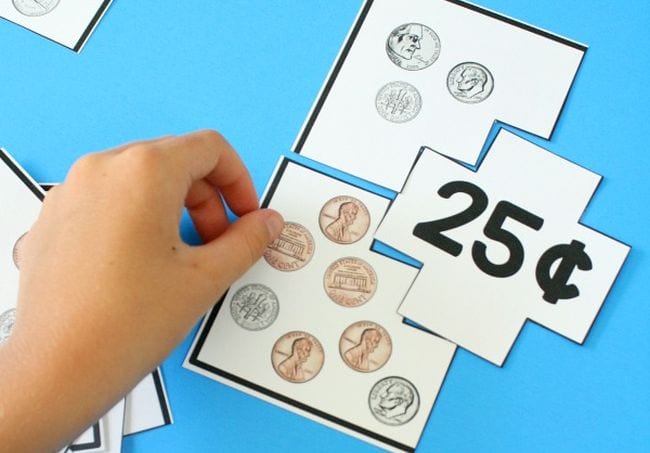
Fantastic Fun and Learning/Coin Puzzles via fantasticfunandlearning.com
Print these free puzzles for a simple but fun way to work on coin values. Kids match up the pictures with the amounts shown. There’s also a blank version where kids can add their own coins to the squares instead.
Learn more: Fantastic Fun and Learning
28. Fill a Big Piggie with coins
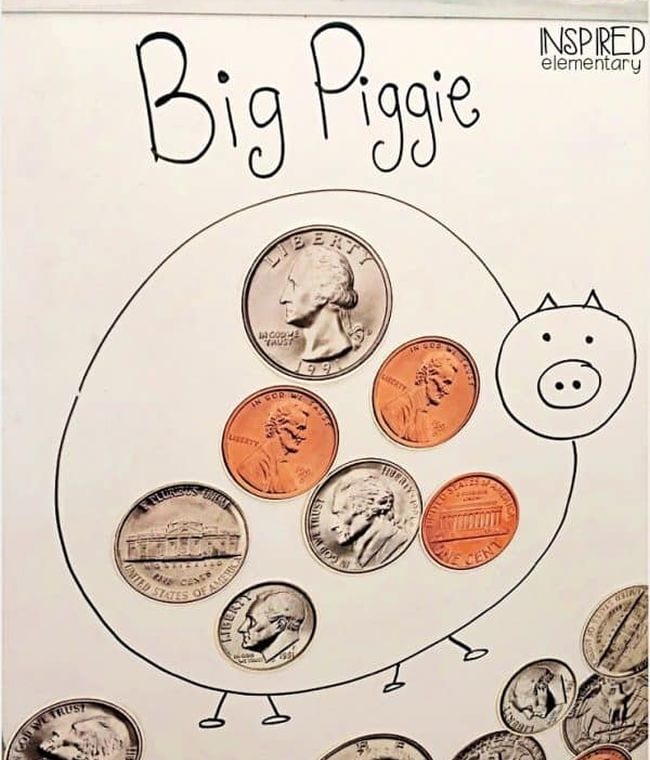
Inspired Elementary/Big Piggie via inspiredelementary.com
This whole-class math game is perfect when you have a few minutes to fill before moving on to your next activity. Draw a big piggie on your whiteboard and set a goal number, then have students add coins until they reach the right amount. Try challenges like finding the fewest number of coins that will work, or not using any nickels, etc.
Learn more: Inspired Elementary
29. Add up dollars and cents with Dollar Dash
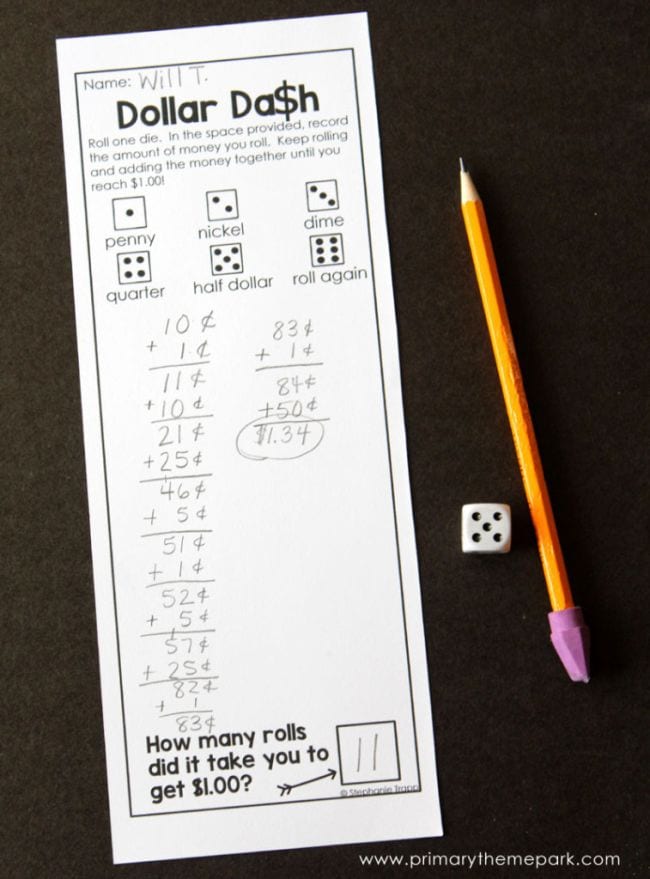
Primary Theme Park/Dollar Dash via primarythemepark.com
This simple game has kids rolling dice and adding up a running total in a race to reach $1. You can change the target amount for more practice too.
Learn more: Primary Theme Park/Dollar Dash
30. Play Kaboom! with coin sticks
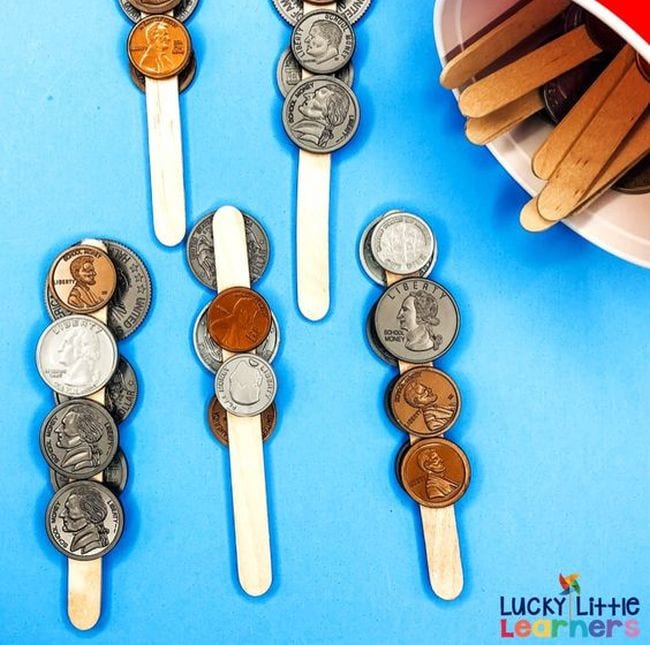
@luckylittlelearners via Instagram
Second grade math students should be fluent in working with money, and this fun game will challenge their skills. They draw a stick and add up the plastic coins glued to it. If they get the right answer, they keep the stick. If they draw Kaboom! all their sticks go back in the cup. See how it works in the video at the link.
Learn more: @luckylittlelearners via Instagram
31. Go bowling to measure and graph data
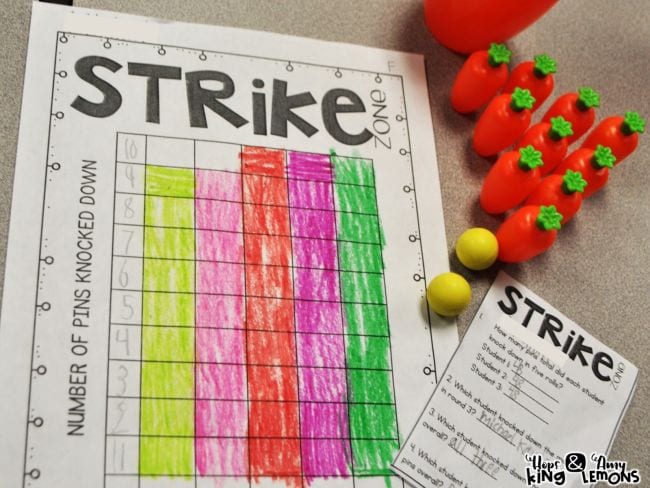
Amy Lemons/Bowl and Graph via amylemons.com
Snag a mini bowling set from the dollar store for this second grade math game. Kids bowl and graph the number of pins they knock down on each turn. So fun!
Learn more: Amy Lemons/Bowl and Graph
32. Compete at Tic-Tac-Graph
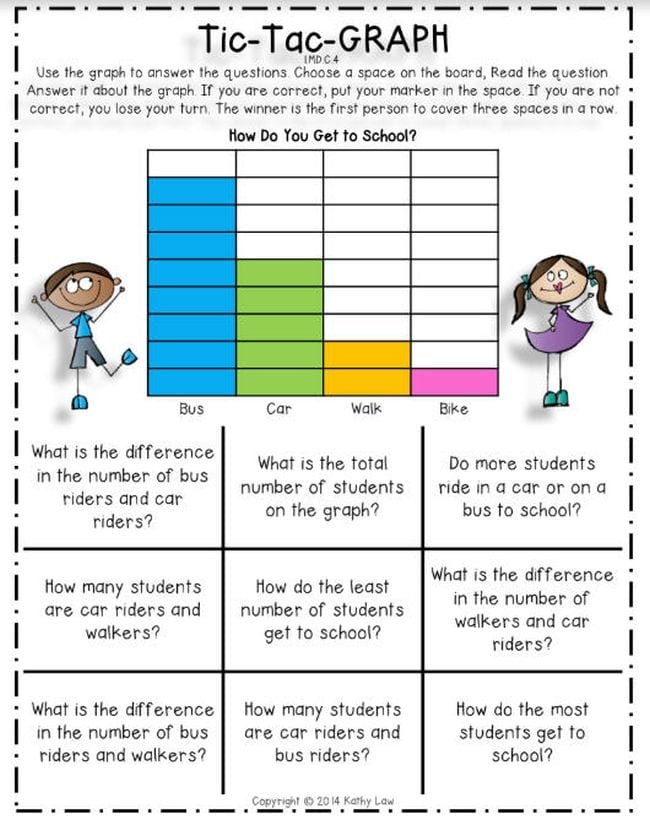
First Grade a la Carte/Tic-Tac-Graph via firstgradealacarte.blogspot.com
Creating good graphs is important, but so is knowing how to read them and interpret the data. This free printable asks kids to answer questions based on the information shown in a simple bar graph.
Learn more: First Grade a la Carte
33. Recognize 3D shapes in mystery bags
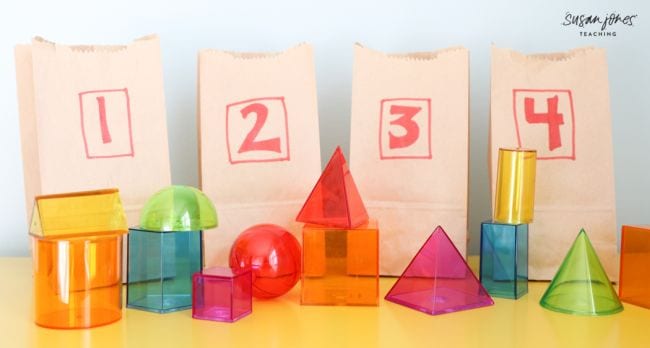
Susan Jones Teaching/Mystery Shape Bags via susanjonesteaching.com
Place a 3D shape block into each numbered bag. Kids work in groups or on their own to identify each shape only by touch (no peeking!).
Learn more: Susan Jones Teaching
34. Partition Play-Doh shapes
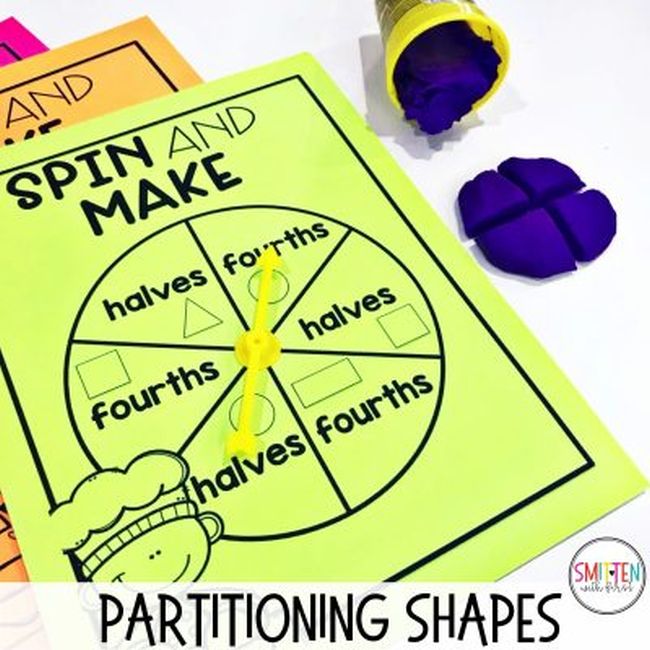
Smitten With First/Partitioning Shapes via smittenwithfirstblog.com
Second grade math students begin to work with the concept of fractions by partitioning shapes into equal shares. Play-Doh is perfect for this activity, giving kids hands-on practice in breaking shapes down into pieces.
Learn more: Smitten With First
35. Spin and build cookie fractions
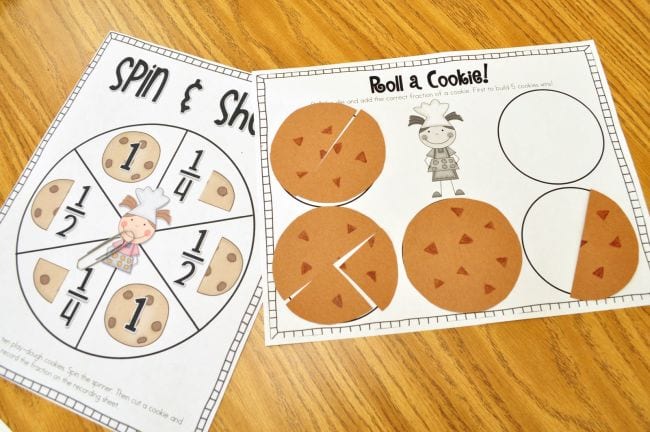
Mrs. Ricca’s Kindergarten/Roll a Cookie via mrsriccaskindergarten.blogspot.com
Second grade math students begin working with basic fractions as a part of a whole. This free printable game helps them build those skills.
Learn more: Mrs. Ricca’s Kindergarten

